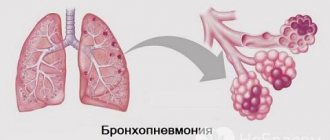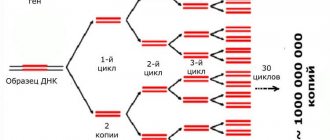Types of constipation
Constipation is usually divided into organic and functional. Organic is rare in children. The reasons for organic consolidation may be in the anatomical features of the intestinal structure, neoplasms and defects acquired during surgery.
Functional constipation in children is usually divided into:
- Spastic;
- Atonic.
Spastic
With spastic constipation, the baby has a spasm in the intestines. For this reason, feces do not move through the intestines for a long period. The accumulation of feces in a separate area of the intestine contributes to its compaction. Defecation is difficult and painful.
Atonic
Atonic constipation occurs due to poor diet or after taking antibiotics. Symptoms characteristic of this type of constipation:
- Lack of appetite;
- Weakness, lethargy;
- Lack of bowel movements for a long period;
- Blood is seen in the stool;
- The stomach feels bloated.
Consolidation after antibiotics occurs more often in children than in adults. During antibiotic therapy, you should pay close attention to your child’s diet.
Psychological constipation
Modern medicine identifies another type of stool retention in children - psychological. The symptom can occur in children over 2 years of age who control their bowel movements. Children hold back urges in new or uncomfortable environments. Often the symptom occurs when visiting kindergarten. The new environment affects the child’s psychological state. Psychogenic consolidation is difficult to eliminate on your own.
When feces accumulate, the baby's stomach hurts and the intestines may be injured. If stool retention occurs regularly, consultation with a psychologist is necessary.
Symptoms of intoxication
Each person exhibits intoxication symptoms individually. It all depends on age, the causes of constipation, as well as the presence of concomitant diseases in the patient. An important factor is the form in which this pathological process manifests itself.
The main signs of gastrointestinal dysfunction are the absence of stool for more than 1 week, heaviness and discomfort in the abdomen and loss of appetite. Staying in the body, feces continue their further decomposition. In this regard, there is a risk of toxins entering the blood, which can lead to intoxication of the body. You can recognize incipient intoxication by the following symptoms:
- headache;
- nausea, vomiting;
- weakness throughout the body, drowsiness;
- increased body temperature;
- bad breath;
- change in urine color and unpleasant odor.
With prolonged intoxication of the body, nervous system disorders begin to appear, hair loss, brittle nails are observed, acne and eczema form on the skin. Symptoms such as swelling of the face and limbs may occur.
Why do children get constipated?
Childhood is a favorable time for bowel disorders. Diarrhea often alternates with constipation. There are many factors that can provoke consolidation. A harmless reason is the consumption of fixative foods.
Temporary absence of bowel movements may accompany the disease. During a difficult period, feces become dehydrated. Symptoms that provoked the phenomenon: fever, high temperature, vomiting.
Often, the absence of stool occurs in children after rotavirus. Sometimes alternates with diarrhea. The patient may have a fever, which will be a sign of constipation due to pathology.
Severe constipation can begin after an intestinal infection. A patient with this condition may not have a bowel movement for three days. At the same time, there is severe pain in the abdomen. Sometimes I have a false urge to go to the toilet.
Antibiotic-induced illness in children is a common occurrence. When taking certain medications, you may also experience a lack of bowel movements.
Food allergies to foods can cause stool retention and difficulty defecating.
Daily regime
Despite the significant role of diet, it may not be effective if the child does not develop the habit of emptying his bowels at a certain time, preferably in the morning (6-9 hours). This habit should be developed and reinforced. To do this, immediately after getting up in the morning, the child drinks 0.5-1 glass of cold water or vegetable juice on an empty stomach.
If there is a urge to stool, the patient empties the intestines as much as possible. If there is no urge to defecate, you should first resort to physical exercise, breakfast and after a while go to the toilet. A squatting position is assumed, with legs tucked to the stomach. The act of defecation is aided by self-massage of the abdomen with hands, rhythmic retraction of the anus, and pressure between the tailbone and the anus.
Appropriate conditions must be created for the child. If the child is small, then it is better to sit him not on the toilet, but on the potty (previously washed clean and warmed slightly above body temperature). Restoring the act of defecation is a long-term task, and it must be solved by parents and adults in direct contact with the child, persistently, without emotional outbursts.
Treatment of constipation
Constipation in a child must be treated, since a prolonged absence of stool can have a detrimental effect on the organs of the gastrointestinal tract and on the condition of the entire body. Consequences of long-term consolidation:
- The absorption of beneficial microelements is impaired, which leads to the development of anemia and decreased immunity.
- Intoxication of the body occurs, as decay products begin to be absorbed into the blood, poisoning the entire body.
- The mucous membrane becomes inflamed, and severe spasms begin.
- Frequent constipation is fraught with rectal cracks and bleeding.
Due to constipation, the patient's general condition worsens. The baby becomes lethargic.
Timely treatment will help to avoid consequences. Therapy should be carried out based on the causes of the symptom and the age of the children.
One-time fastenings are removed independently. But if they are regular, it is recommended to consult a doctor. Chronic constipation is dangerous for children and adults.
Sometimes surgery comes to the rescue. Surgical intervention is required for acute intestinal obstruction and anatomical pathologies of the organ.
Treatment in newborns
Constipation in a newborn baby is a condition in which stool is hard or completely absent. The baby experiences abdominal pain, presses his knees and cries. These are the signs that let parents know that their baby is constipated. Help for the baby is extremely necessary. Dill water or special means to normalize the functioning of the gastrointestinal tract will help alleviate the condition.
The parent can massage the baby's tummy by stroking it clockwise.
If constipation persists and home remedies do not help, you should consult your doctor. Your pediatrician may recommend:
- Laxatives.
- Gas outlet pipe.
- Enema.
- Glycerin suppositories for babies.
For bottle-fed babies, the doctor will recommend replacing the usual formula with therapeutic food for babies.
Breastfed babies will not be able to adjust their diet; this must be done by the mother. It is because of gaps in the mother's nutrition that an infant often has intestinal upset.
A child from six months of age who has already been introduced to complementary foods may suffer from stool retention due to a new dish introduced into the diet. If constipation occurs in a six-month-old baby who eats some adult food, you need to exclude gas-forming fruits - bananas, apples.
If a month-old baby has no stool for a long time or the stool is hard, there is blood in the stool, the baby is restless, and the temperature has risen, you need to call an ambulance.
- Gas outlet pipe. A gas outlet tube quickly helps to adjust the stool. It relieves gas from the baby's belly. When used correctly, it irritates the intestines and provokes the excretion of feces. If an infant is constipated, a gas tube is an effective method, but the device must be selected correctly. When choosing a tube, you need to pay attention to the tip. It should be soft so as not to cause harm. For a 1-2 month old baby, a 15 cm tube is suitable. For older children – 18 cm.
- Glycerin suppository. Suppositories with glycerin will relieve constipation. Safe for babies from birth. The candle is carefully inserted into the anus. Parents hold the baby's buttocks for some time to prevent the drug from being pushed out.
Treatment in children from one to three years of age
Babies one year of age and older are already eating adult food, but the stomach is not strong enough, so a delay in bowel movements is inevitable. To prevent digestive problems from arising, parents are obliged to provide healthy, nutritious nutrition to their children. It is important to drink more fluid.
The diet of children excludes rice and semolina porridge. Rice cereals in dishes will make the problem worse. It is recommended to reduce the consumption of sweets or eliminate them altogether.
It is permissible to treat stool retention in children under three years of age with laxatives prescribed by a doctor. When taking certain medications, a child may develop an allergy, so the course of treatment is usually two weeks, no more. The main condition for treatment with medications is the absence of contraindications. Therefore, consulting a doctor is necessary.
The doctor prescribes medications based on lactulose. Duphalac is a popular and safe remedy. It has a gentle effect, stimulating intestinal peristalsis.
Treatment in children over three years of age
Fecal retention is dangerous for children of all ages, as it causes intoxication of the entire body and negatively affects the patient’s well-being. Constipation in children over three years of age can be treated with a laxative or an enema.
An enema is given if there is no pain and no blood from the anus.
To activate intestinal function, prokinetics are prescribed. If the baby has pain and cramps in the stomach, No-shpa is prescribed.
To eliminate dysbiosis caused by antibiotics, prebiotics are recommended. Lactulose will help well.
All medications must be prescribed by a doctor.
Clinical signs
It is very important for parents to promptly suspect constipation in their child. The following signs should alert you:
- The baby indicates abdominal pain and his behavior becomes restless.
- There is discomfort when going to the toilet.
- The number of trips to the toilet is reduced.
- The child can have bowel movements no more than once or twice a week.
- Feces have a dense consistency.
- There is dry stool.
- The act of emptying occurs with great difficulty, the baby strains and complains of pain.
If such symptoms are observed for one or two days, there is no cause for concern. Perhaps you should just adjust your baby’s diet. If the problem lasts for a long time, parents should definitely show their child to a specialist. You cannot put off going to the clinic, as constipation can become chronic, which can negatively affect the child’s health.
In one of our articles, read more about the treatment of constipation in infants.
Folk recipes
At home, you can use folk remedies for constipation. Children are allowed:
- Wheat bran and seaweed are natural laxatives. Use on its own or as part of dishes.
- Senna - an herb that will help cope with constipation. The plant is pre-brewed and infused. Take one spoon three times a day.
There are many recipes to eliminate the symptom. To treat children, you need to choose those products that eliminate the phenomenon gently and at the same time have a pleasant taste. The best option is dried fruits. Dried fruits are allowed in their natural form, in the form of infusions. Recipes for eliminating stool retention:
- Drink made from dried cherries. Dry fruits need to be brewed and infused.
- Pour boiling water over prunes and dried apricots and leave for 15 minutes. Give the fruits to the child.
- You can prepare a decoction from raisins.
The home method will be effective if the symptom is not caused by a serious disease of the gastrointestinal tract. If you suspect a pathological process, it is better to abandon traditional methods of eliminating the phenomenon and urgently seek qualified help. The doctor can give a referral for tests and quickly identify the cause of stool retention.
Diet
The main thing in the treatment of stool disorders is diet. Proper nutrition is half the success of therapy.
For the functioning of the gastrointestinal tract of infants, the nutrition of a nursing mother is important. Mom needs to exclude strengthening foods from the menu: rice, legumes, fatty broths. For a while, it is better to reduce the amount of sweets or give them up altogether. It is recommended to eat more fresh vegetables and fruits.
Older children who have switched to adult nutrition are recommended to consume the following foods:
- White cabbage, Brussels sprouts or broccoli.
- If defecation is delayed, children are advised to eat fresh fruits along with the peel. The fruits are thoroughly washed beforehand.
- Babies from 6 months can be given vegetables in the form of puree - broccoli, carrots.
- Dried fruits help fight persistent constipation. Children under one year old are given compotes and infusions; older children can eat pre-soaked fruits.
- Natural yoghurts, only made ones, stimulate the intestines.
You should definitely include porridge in your kids’ menu. Babies receiving complementary foods should be given porridge with a very thin consistency. Thick porridge is cooked for one-year-old children. Buckwheat porridge has a good effect on the stomach. Buckwheat or oatmeal poses a minimal risk of constipation.
The menu of a teenager in the absence of stool should be the same as that of an adult in a similar situation.
Prevention
To avoid defecation delay, you need to follow some recommendations:
- Babies in the first year of life must be fed with breast milk, even after the introduction of complementary foods it is recommended to give breastfeeding.
- Before feeding, the baby should be placed on his stomach.
- Older children need to be provided with proper nutrition. The child's diet must be balanced. Fatty and spicy dishes are excluded from the menu.
- The child must adhere to a physical activity regime. Regular exercise and walking will be useful.
- There should be a favorable environment in the family. The baby must be protected from stressful situations.
After constipation, when the patient’s well-being has improved, it is not recommended to return to the usual diet. It is better to follow the regime and diet constantly.
Prolonged absence of stool in children or difficulty defecating is not uncommon. First aid for distress can be provided by parents. If constipation is persistent and cannot be treated at home, you should seek help from a doctor.











